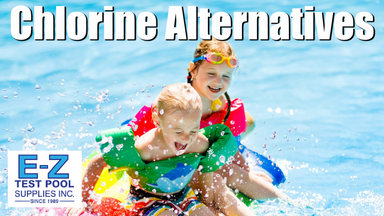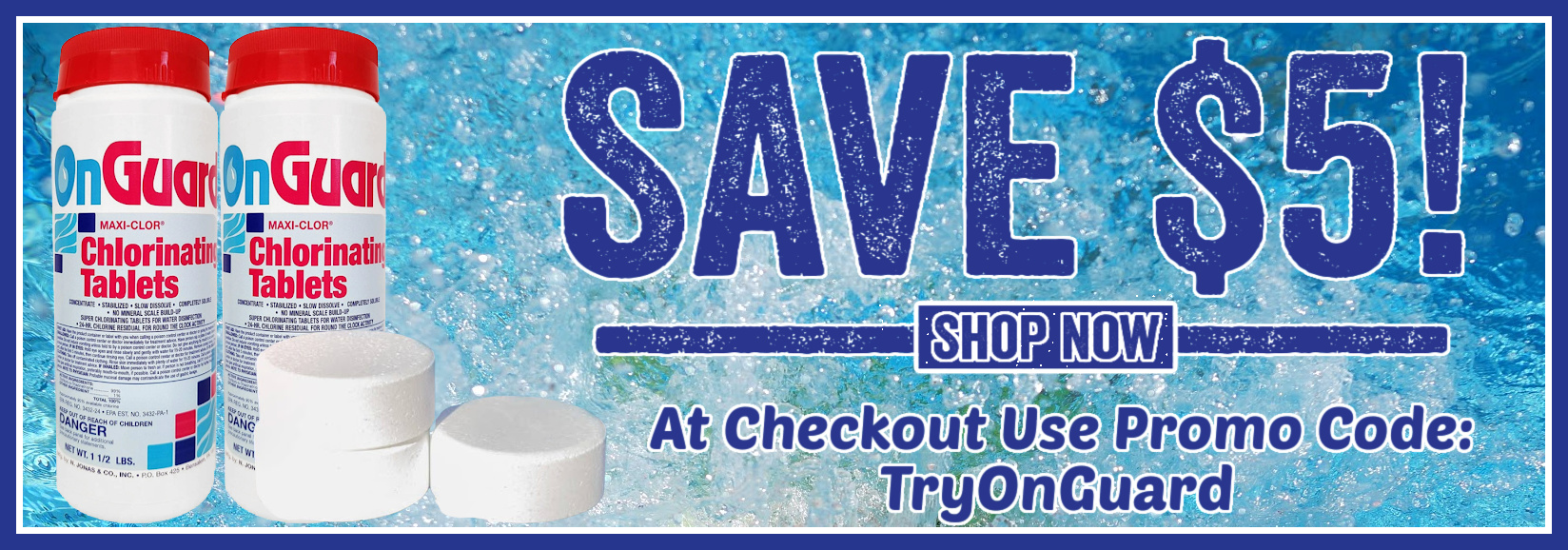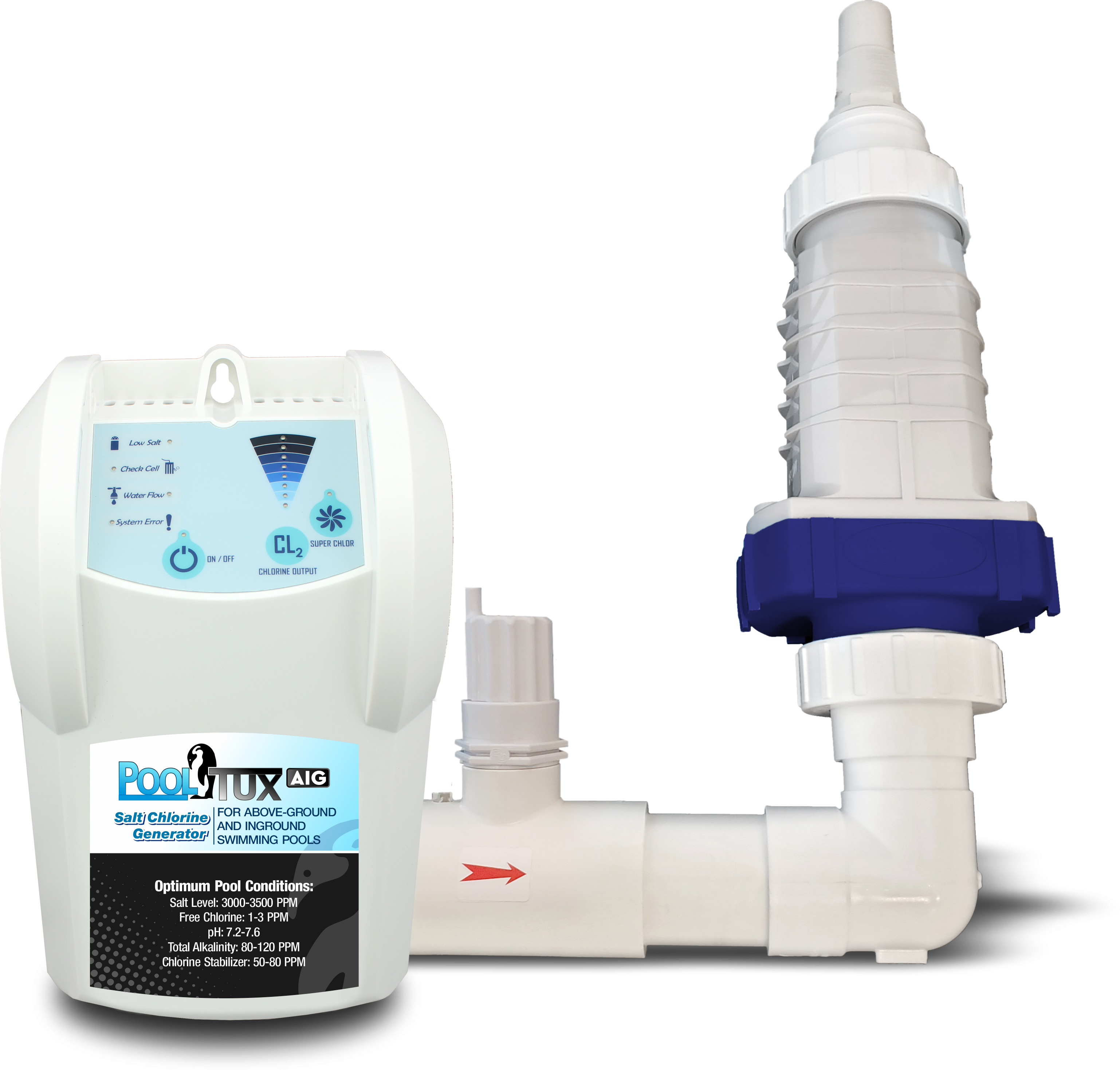Published by Matt Fichera on 12/11/2020
Chlorine Shortage: How to Lower Your Pool or Spa's Chlorine Use
The swimming pool and spa industries are seeing an unprecedented demand for chlorine. The supply chain is being challenged by a surge in the need for COVID-related cleaning products, manufacturing plants having to shut down, and a steady rise in the popularity of pool installations and spa purchases. It is a recipe for a chlorine shortage in the upcoming year. Demand is currently higher than what exists and what can be produced. With this in mind, it’s time to explore alternative pool and spa water treatment methods thus reducing your reliance on chlorine.
Pool water treatment options to eliminate or reduce your reliance on chlorine:
Salt Chlorine Generators
Salt Chlorine Generators are a very popular choice and the number one option to replace chlorine. They are a highly effective disinfectant while also creating softer water to swim in. Salt (NaCl) passes through a salt cell where it receives an electric charge, breaking it down and releasing (Cl) chlorine. This replaces the need to haul tabs or granulated chlorine to your pool. You still need to replace the salt cell every 5 to 9 years and keep the pool water optimized. Read Our Blog on Salt Systems: https://www.eztestpools.com/blog/pooltux-salt-chlorine-generator/
Ozone
Ozone Generators aid in the breakdown of organic contaminants creating softer water along the way. Significantly stronger than chlorine, they prevent calcium scaling while also going to work as a powerful oxidizer lowering chemical usage by 60%, possibly all of the way up to 90%. Ozone is a blue colored gas that is made from three atoms of oxygen. When used in a swimming pool it kills and inactivates bacteria, parasites, and viruses. Also, it’s a great oxidizer meaning it can chemically destroy water contaminants. Ozone is unstable and you cannot transport it so it’s generated on site and sanitizes through a water circulation system.
UV Light
Ultra-Violet, “UV” Light breaks down chloramines and prevents micro-organism growth thus reducing dependance on chlorine. UV rays destroy contaminants such as algae, bacteria, and viruses. The UV light actually goes after them, alters their DNA so they can’t reproduce, and then kills them. Utilizing this technology can lower chlorine usage as much as 50%. The UV light is contained within a graphite housing with no way of exposing it to anyone enjoying the pool. The water goes through the pool’s filtration system and then through the light rays so it needs very little maintenance in the long run. Read Our Blog on UV: https://www.eztestpools.com/blog/swimming-pool-uv-systems/
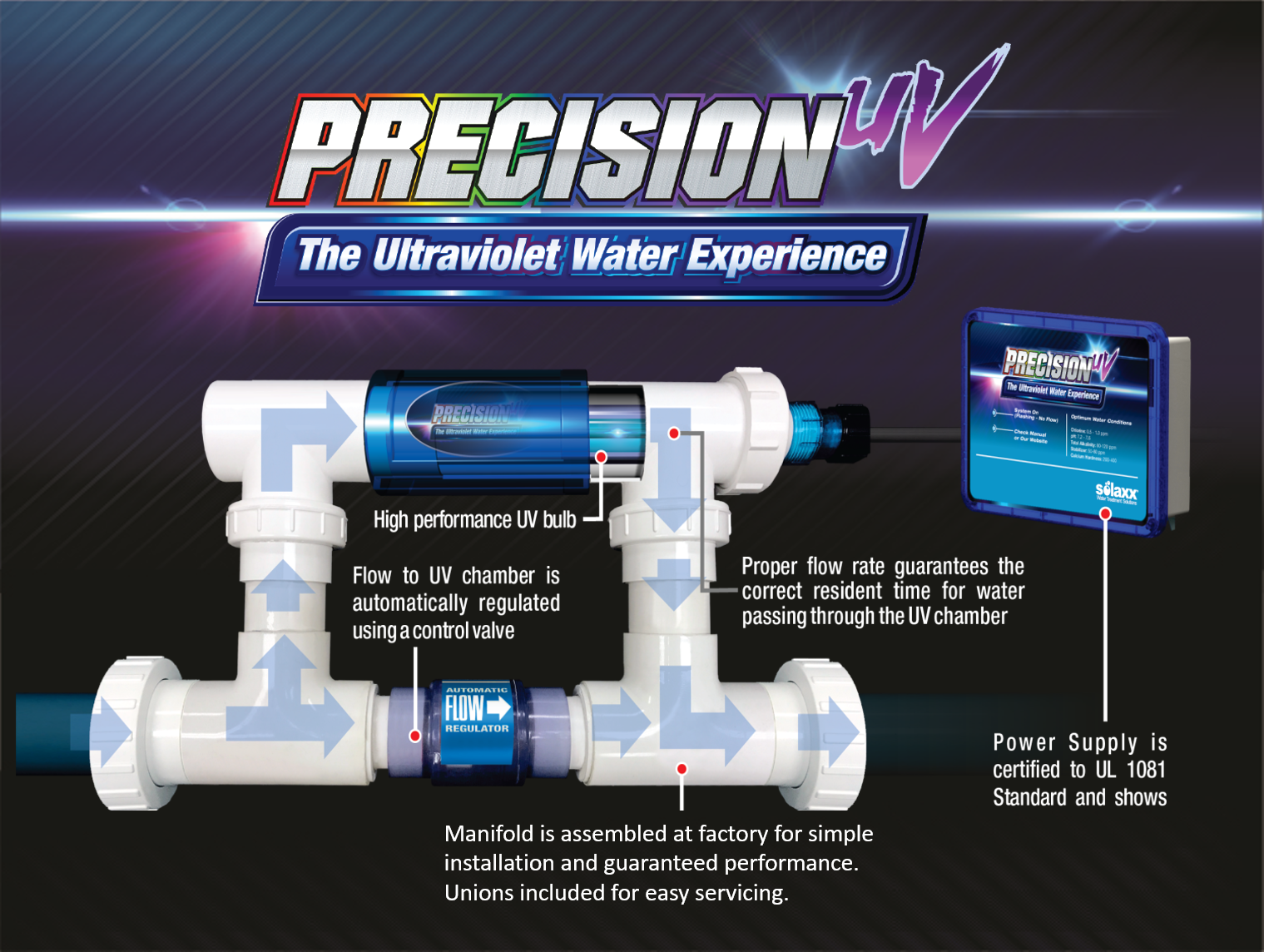
AOP
AOP comes from combining the use of Ultraviolet Light and Ozone. Utilizing this system destroys 99.9% of viruses, pathogens, and bacteria using an advanced oxidization process (AOP for short). This process greatly reduces the amount of chlorine that’s required. Advanced Oxidation Process creates hydroxyl radicals (OH-) when ozonated water is irradiated with UV rays destroying 99.99% of viruses, pathogens, and bacteria. Read our Nuvo blog at: https://www.eztestpools.com/blog/solaxx-nuvo-ultra...
Mineral Sanitizers
Mineral Sanitizers such as copper and silver help to control
contaminants and bacteria allowing for chlorine levels to be reduced. Minerals
systems kill bacteria, inhibit algae growth, and are easy to maintain. Silver
has antibacterial properties and copper is a known algaecide. Zinc is also
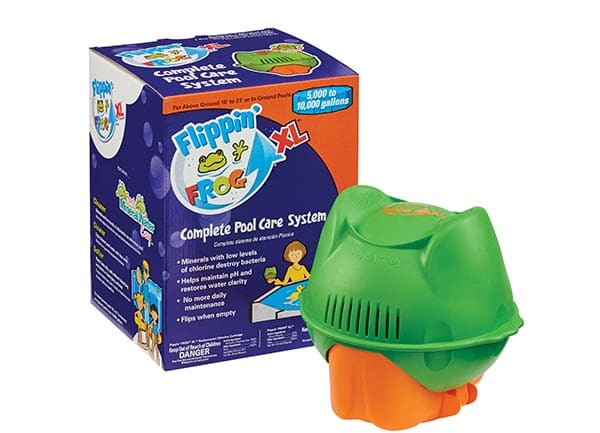 sometimes used in these types of systems as it also is antibacterial. Limestone
has also been included as it works to absorb chlorine acid and maintains a more
neutral and stable pH level of the pool water. Relying on minerals as
sanitizers can lower chlorine usage as much as 50%. Take a Look at Our Flippin' Frog Mineral Sanitizer Blog:
https://www.eztestpools.com/blog/flippin-frog-and-flippin-frog-xl-mineral-systems-to-reduce-pool-chlorine-use/
sometimes used in these types of systems as it also is antibacterial. Limestone
has also been included as it works to absorb chlorine acid and maintains a more
neutral and stable pH level of the pool water. Relying on minerals as
sanitizers can lower chlorine usage as much as 50%. Take a Look at Our Flippin' Frog Mineral Sanitizer Blog:
https://www.eztestpools.com/blog/flippin-frog-and-flippin-frog-xl-mineral-systems-to-reduce-pool-chlorine-use/
Specialty Chemicals
Specialty chemicals such as enzymes, stabilizers, algaecides, phosphate removers, and borates all can be used as a part of weekly pool maintenance helping to lower the workload for chlorine.
Natural Enzymes - A very proactive approach to conserving chlorine as enzymes attack and break down oils in the water which frees up more chlorine for disinfecting purposes. Read Our Blog on Orenda Enzymes: https://www.eztestpools.com/blog/orenda-technologies-proactive-pool-chemistry/
Phosphate Removers – Phosphates are found in fertilizers, rotting leaves, beauty products, other pool chemicals, and even your water supply. Phosphates are food for algae. Excess phosphates turn the water a cloudy green and work against your chlorine. Read Our Blog on Phosphates: https://www.eztestpools.com/blog/what-are-swimming-pool-phosphates-how-can-they-be-treated/
Algaecides - Usually, in a pool with live active algae, there is very little free chlorine present in the water as it will all be used fighting off the algae. It doesn’t necessarily kill it all off, but it gets used up in the battle. Algaecides stop or prevent algae growth thus reducing demand for chlorine. Read Our Blog on Algaecides: https://www.eztestpools.com/blog/all-about-algae/
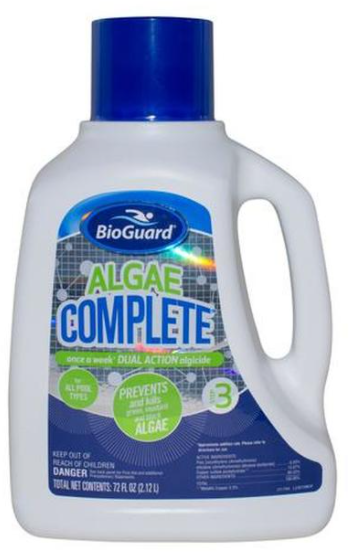
Stabilizers - Sometimes referred to as cyanuric acid, stabilizer comes in two forms, a powdered granule as well as a liquid. You can think of this chemical as sunblock for your pool. The summer sun causes the chlorine to actually evaporate out of your pool water, which in turn, lowers the chlorine levels overall. When this happens the water is more susceptible to all of the things that the chlorine was put there to combat in the first place. Read Our Blog on Stabilizer: https://www.eztestpools.com/blog/what-is-chlorine-pool-stabilizer/
Borates - Borate products help to keep pool water’s pH within a target range and in turn, prevents scale and corrosion. They are used as algaestats which is a preventative tool for stopping algae growth. As a result of this, you actually reduce the consumption of your chlorine contributing to easier maintenance and better-quality pool water. Read Our Blog on Borates: https://www.eztestpools.com/blog/borate-pool-treatment/
Best Practices Resources
Many best practices for pool maintenance will also help keep the water’s demand for chlorine down. Shock treatment when needed, regular water testing, pool water balancing, proper filtration, brushing and vacuuming periodically will all help mitigate your pool’s need for chlorine as well as maximizing its effectiveness in providing clean and safe water.
Contact E-Z Test Pool Supplies for additional information or questions on how to reduce the amount of chlorine your pool needs. We would be happy to help.

